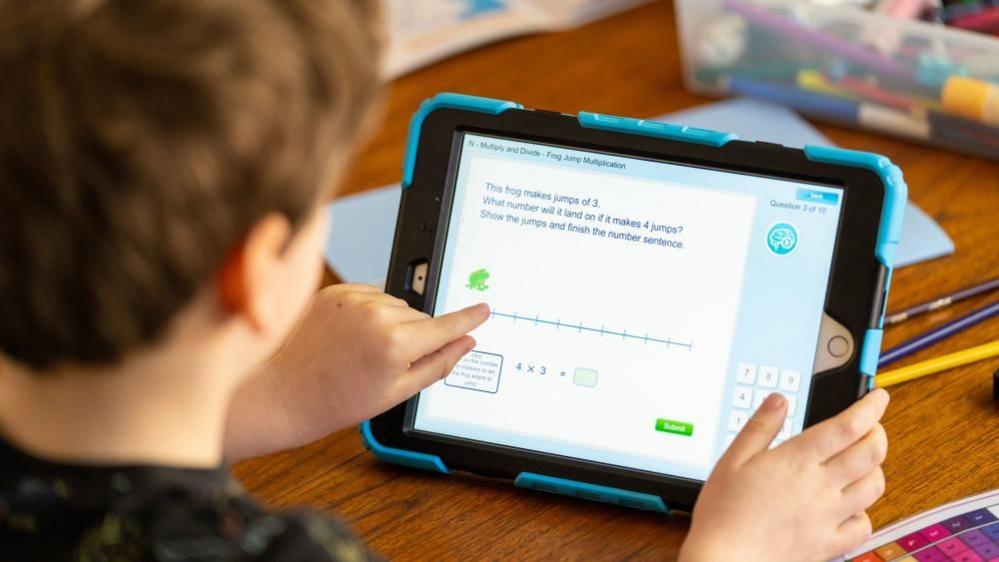Home-schooling triples since start of pandemic

Wakefield Council has seen the number of children being home-schooled triple since the start of the Covid pandemic
- Published
The number of children moving into home-schooling in Wakefield has tripled since the start of the Covid-19 pandemic.
The figure has risen from 317 in the 2019/20 academic year to 964 by November 2024, according to a council report.
The figure is in line with a national trend which saw the number of parents choosing to home-educate their children rise sharply after the pandemic.
Wakefield Council's children and young people scrutiny committee set up a working group to carry out a review after the caseload rose to 789 in February last year.
Of those, the most common reason (76 cases) given for a new elective home education (EHE) referral was "anxiety".
Other listed reasons included "moving school/school dispute" (41), "behaviour" (10) and "bullying" (12).
'The school system is broken': Why more parents are home-educating their children
- Published16 December 2024
Members of the working group have met with senior education officers and a council education welfare officer (EWO) as part of their research, according to the Local Democracy Reporting Service.
The report said: "It was particularly useful to hear a first-hand perspective of how increased capacity enabled EWOs to employ a more proactive approach allowing for more frequent interactions with schools and parents."
Group members also planned to hold "structured interviews" with teachers, parents, young people and school governors.
The review was expected to be submitted to the committee later this year outlining the group's findings and recommendations.
'She stopped eating' - Why home education is rising
- Published14 November 2024
Wiltshire pupils moving to home education doubles
- Published14 November 2024
Department for Education data for autumn 2023 estimates there were 92,000 EHE cases nationally.
The figure for autumn 2022 was 80,900.
Parents can choose to provide their child's education outside of the school system under the Education Act 1996.
They are then wholly responsible for the approach, structure, content and cost of all education provision to ensure they provide a "suitable and efficient" education.
However, there is no legal definition of "suitable" education and no official definition of how many hours per day a full-time education should take.
Local authorities have a duty to inquire about a child's education at least once a year if they are of compulsory school age.
Last April, education officers told the committee how the council was dedicating more resources to supporting youngsters being educated at home.
Committee members also heard how the authority was working more closely with educational psychologists to get a better understanding of some cases.
Listen to highlights from West Yorkshire on BBC Sounds, catch up with the latest episode of Look North or tell us a story you think we should be covering here, external.